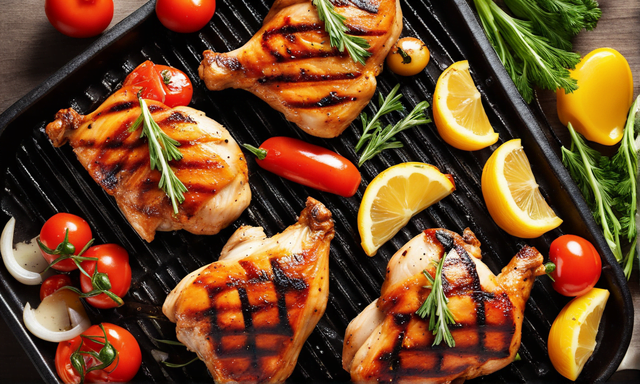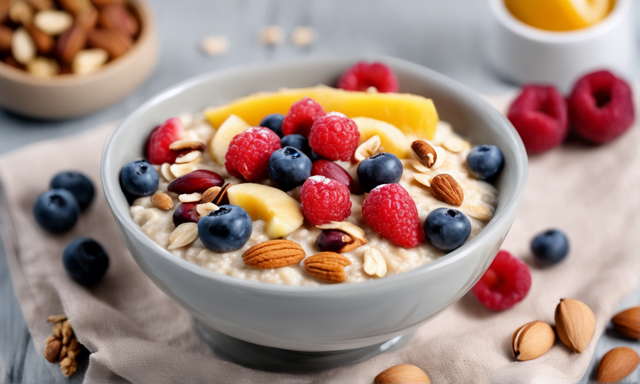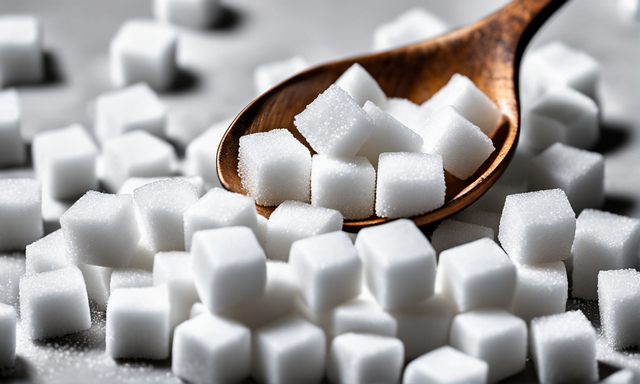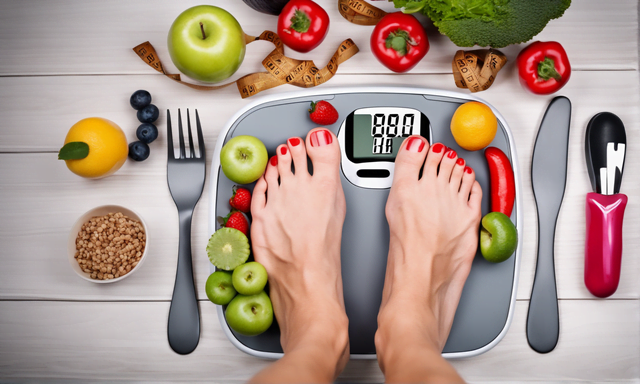It always gives a great feeling to lose weight fast without exercise.
Do you want to lose weight fast but don’t have the time, motivation, or ability to exercise regularly? If so, you might think that your goal is impossible to achieve. However, exercise is not the only factor that affects your weight. There are many other aspects of your lifestyle that can influence how many calories you consume and burn, such as your diet, sleep, stress, and metabolism.
In this exposition, I shall elucidate the art of expeditious weight reduction devoid of strenuous physical exertion, employing a set of uncomplicated yet efficacious stratagems. These stratagems are designed to facilitate the establishment of a salubrious and sustainable caloric insufficiency within your dietary regimen. A caloric insufficiency materializes when your caloric intake descends beneath your expenditure, compelling your corporeal vessel to deplete its adipose reservoirs as a primary fuel source, thus precipitating a diminution in your corporeal mass. By contriving a daily caloric shortfall ranging from 500 to 1000 calories, one can anticipate a diminishment of approximately 1 to 2 pounds weekly, a pace widely regarded as both secure and pragmatic for achieving weight reduction.
Here are the tips on how to lose weight fast without exercise:

Tip #1: Lose Weight Fast By Drinking More Water
There is no gainsaying the fact that water is an essential part for your health and well-being; it helps to regulate your body temperature, flush out toxins, lubricate your joints, and transport nutrients and oxygen to your body cells. Outside these important functions, water also plays a key role in weight loss, as it can help you:
- Stay hydrated: Dehydration can cause fatigue, headaches, and cravings, which can make you eat more than you need. Drinking enough water can help you avoid these symptoms and keep your energy levels high.
- Boost your metabolism: Drinking water can increase your metabolic rate by up to 30% for about an hour, which means you burn more calories at rest. Drinking cold water can have an even greater effect, as your body has to work harder to warm it up.
- Suppress your appetite: Drinking water before meals can help you feel fuller and reduce your food intake. One study found that drinking 500 ml of water 30 minutes before a meal reduced calorie consumption by 13% compared to not drinking water.
- Replace high-calorie drinks: Drinking water instead of sugary drinks such as soda, juice, or alcohol can save you hundreds of calories per day. These drinks are often loaded with added sugar, which can spike your blood sugar levels and trigger fat storage.
How much water is required by an adult human per day? No one can say with certainty how much water is perfect per a day. However, depending on some factors such as age, weight, activity level, climate, and health condition; there is a general rule of thumb that says that the adequate daily water intake is at least 8 glasses or about 2 liters of water per day . It is also shown that you may need more if you sweat a lot, exercise intensely, or live in a hot or dry environment.

Tip #2: Lose Weight Fast Eat More Protein
Protein is one of the most important macro nutrients for weight loss, as it can help you:
- Build and maintain muscle mass: Muscle is more metabolically active than fat, which means it burns more calories at rest. Protein is the building block of muscle tissue, so eating enough protein can help you preserve or increase your muscle mass while losing fat.
- Boost your metabolism: Protein has a high thermic effect, which means it requires more energy to digest and absorb than carbohydrates or fats. Eating protein can increase your metabolic rate by up to 35% for several hours after a meal.
- Suppress your appetite: Protein is the most satiating macro nutrient, which means it makes you feel fuller for longer and reduces your hunger hormones. Eating protein can decrease your calorie intake by up to 441 calories per day.
How much protein should you eat per day? The answer may vary depending on your age, weight, activity level, and fitness goals. However, a general recommendation is to eat at least 0.8 grams of protein per kilogram of body weight per day. For example, if you weigh 70 kg (154 lbs), you should eat at least 56 grams of protein per day. You may need more if you are very active, elderly, or trying to build muscle.
Some of the best sources of protein are lean meats (such as chicken, turkey, beef), fish (such as salmon, tuna), eggs (especially egg whites), dairy products (such as milk, yogurt), legumes (such as beans, lentils), nuts (such as almonds, walnuts), seeds (such as chia, flax), and protein powders (such as whey, soy).

Tip #3: Lose Weight Fast by Eating More Fiber
Fiber is a type of carbohydrate that cannot be digested by your body. It passes through your digestive system intact and provides various health benefits. Fiber can help you lose weight fast without exercise by:
- Improving your digestion: Fiber adds bulk to your stool and helps it move smoothly through your intestines. This can prevent constipation, bloating, and other digestive issues that can affect your weight and well-being.
- Lowering your cholesterol: Fiber can bind to cholesterol in your gut and prevent it from being absorbed into your bloodstream. This can lower your LDL (bad) cholesterol and reduce your risk of heart disease and stroke.
- Regulating your blood sugar: Fiber can slow down the absorption of glucose into your blood and prevent spikes and crashes that can cause cravings and overeating. This can also lower your insulin levels and improve your insulin sensitivity, which can help you burn fat more efficiently.
- Suppressing your appetite: Fiber can swell up in your stomach and create a feeling of fullness that lasts for hours. Eating fiber can reduce your calorie intake by up to 10% per day.
How much fiber should you eat per day? The answer may vary depending on your age, gender, and health conditions. However, a general recommendation is to eat at least 25 grams of fiber per day for women and 38 grams for men. You can increase your fiber intake gradually by adding more fruits, vegetables, whole grains, legumes, nuts, and seeds to your diet.

Tip #4: Lose Weight Fast by Eating Less Sugar
Sugar is one of the worst enemies of weight loss, as it can sabotage your efforts in many ways. Sugar can make you gain weight by:
- Increasing your calorie intake: Sugar is high in calories but low in nutrients, which means it provides empty calories that do not satisfy your hunger or nourish your body. Eating too much sugar can easily exceed your daily calorie needs and lead to weight gain.
- Spiking your blood sugar: Sugar is quickly absorbed into your bloodstream and causes a rapid rise and fall of glucose levels. This can trigger hunger, cravings, and mood swings that can make you eat more than you need.
- Stimulating fat storage: Sugar can increase your insulin levels and decrease your glucagon levels, which are hormones that regulate your blood sugar and fat metabolism. High insulin and low glucagon can signal your body to store excess glucose as fat, especially in the abdominal area.
- Inflaming your body: Sugar can cause chronic inflammation in your body, which is a state of low-grade stress that can impair your immune system, damage your cells, and disrupt your hormonal balance. Inflammation can also increase your appetite, slow down your metabolism, and interfere with your weight loss.
How much sugar should you eat per day? The answer may vary depending on your age, weight, activity level, and health conditions. However, a general recommendation is to limit your added sugar intake to no more than 10% of your total calories per day. For example, if you eat 2000 calories per day, you should eat no more than 200 calories from added sugar, which is equivalent to about 50 grams or 12 teaspoons of sugar.
Some of the main sources of added sugar are soft drinks (such as soda, juice), sweets (such as candy, chocolate), baked goods (such as cakes, cookies), sauces (such as ketchup, barbecue), and processed foods (such as cereals, snacks). You can reduce your sugar intake by choosing water or unsweetened beverages instead of sugary drinks, opting for fresh fruits or nuts instead of sweets, baking or cooking with natural sweeteners such as honey or maple syrup instead of refined sugar, and reading nutrition labels carefully to avoid hidden sugars.

Tip #5: Eat Smaller and More Frequent Meals
Eating smaller and more frequent meals is a simple but effective way to lose weight fast without exercise. It can help you:
- Control your portions: Eating smaller meals can help you avoid overeating and reduce the amount of food you consume per day. A good way to measure your portions is to use the palm of your hand as a guide. For example, one serving of protein should be about the size of your palm, one serving of carbohydrates should be about the size of your fist, one serving of vegetables should be about the size of two palms, and one serving of fat should be about the size of your thumb.
- Balance your blood sugar: Eating more frequently can help you maintain a steady level of glucose in your blood and prevent spikes and crashes that can cause hunger and cravings. A good rule of thumb is to eat every three to four hours or whenever you feel hungry.
- Boost your metabolism: Eating more often can increase the thermic effect of food, which is the amount of energy required to digest and absorb food. This can raise your metabolic rate by up to 10% and help you burn more calories throughout the day.
How many meals should you eat per day? The answer may vary depending on your personal preference, schedule, and goals. However, a general recommendation is to eat four to six small meals per day, with each meal consisting of a balanced combination of protein, carbohydrates, fiber, and fat
In Conclusion:
You can lose weight fast without exercise by following the tips in this article. These tips can help you create a calorie deficit in your diet, which is the key to losing fat. If you follow these tips consistently, you can expect to lose about 1 to 2 pounds per week, which is judged to be a safe and realistic rate for losing weight. You don’t need to exercise regularly to achieve your goal, but you do need to make some changes in your lifestyle and eating habits. Remember that losing weight is not only about looking good, but also about feeling good and being healthy. So start today and enjoy the benefits of a lighter and happier life.





